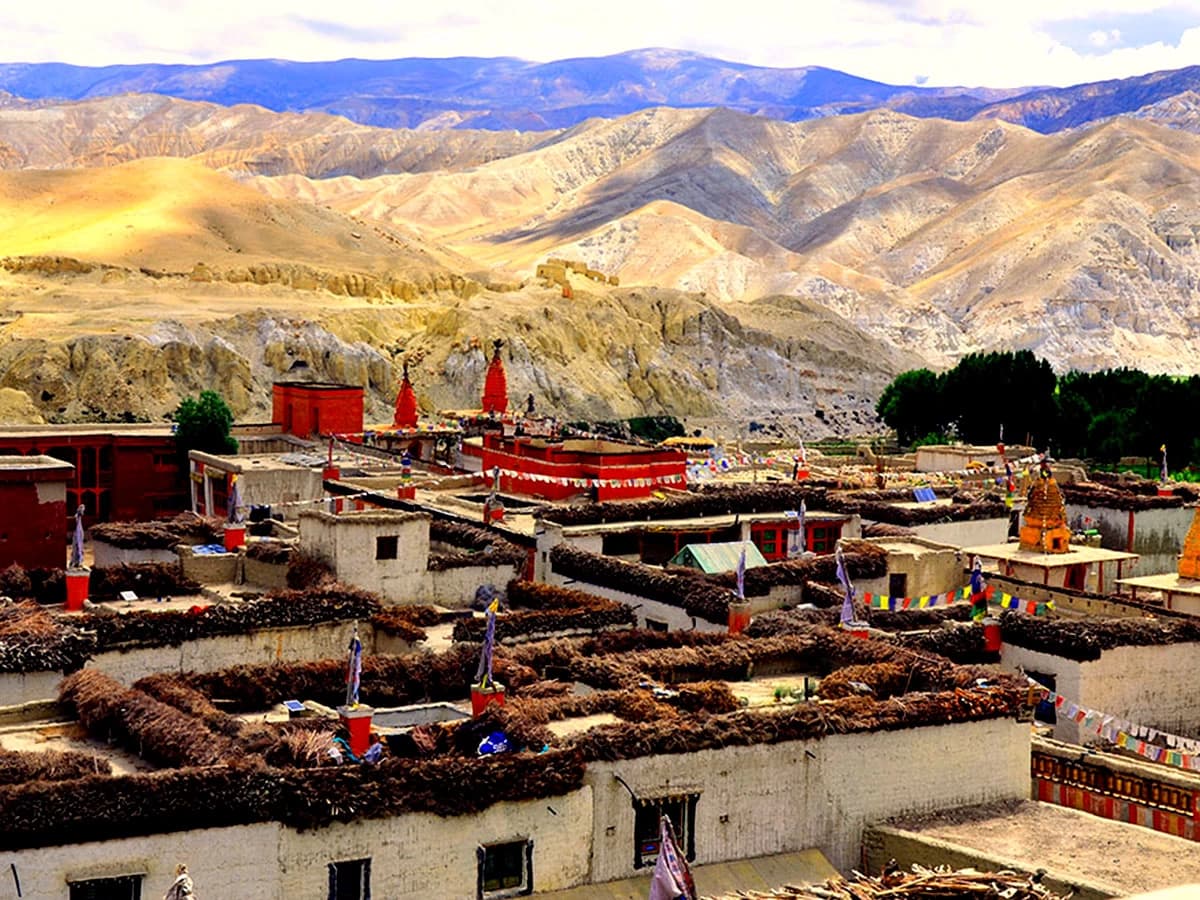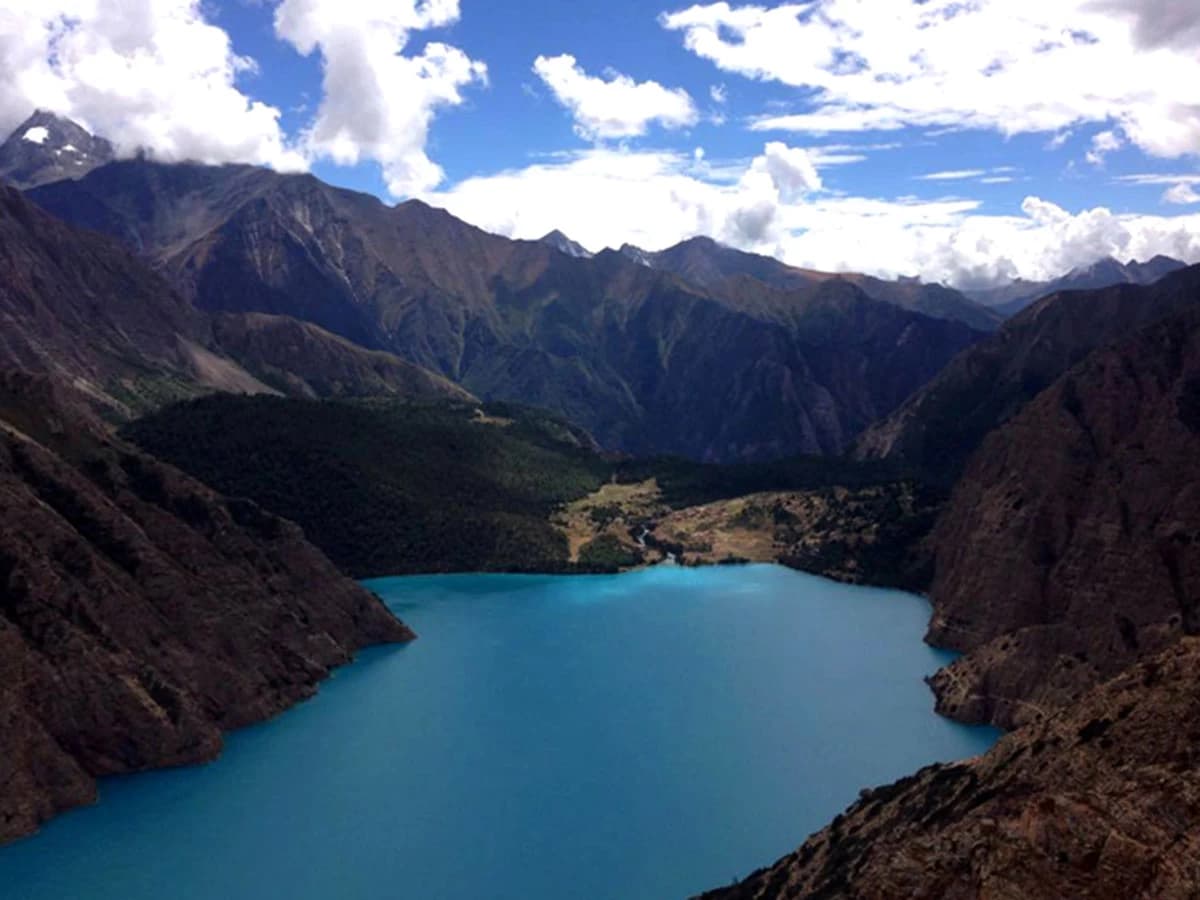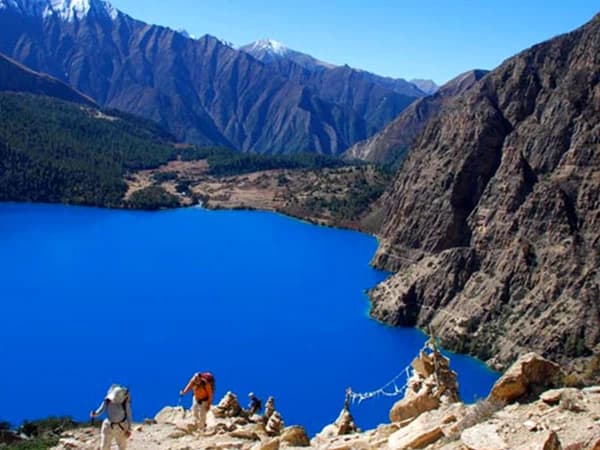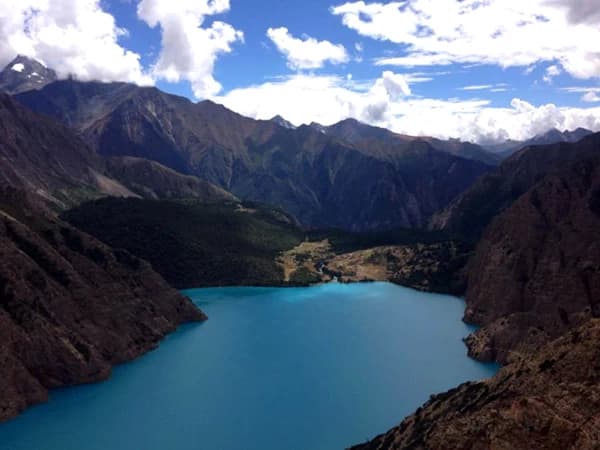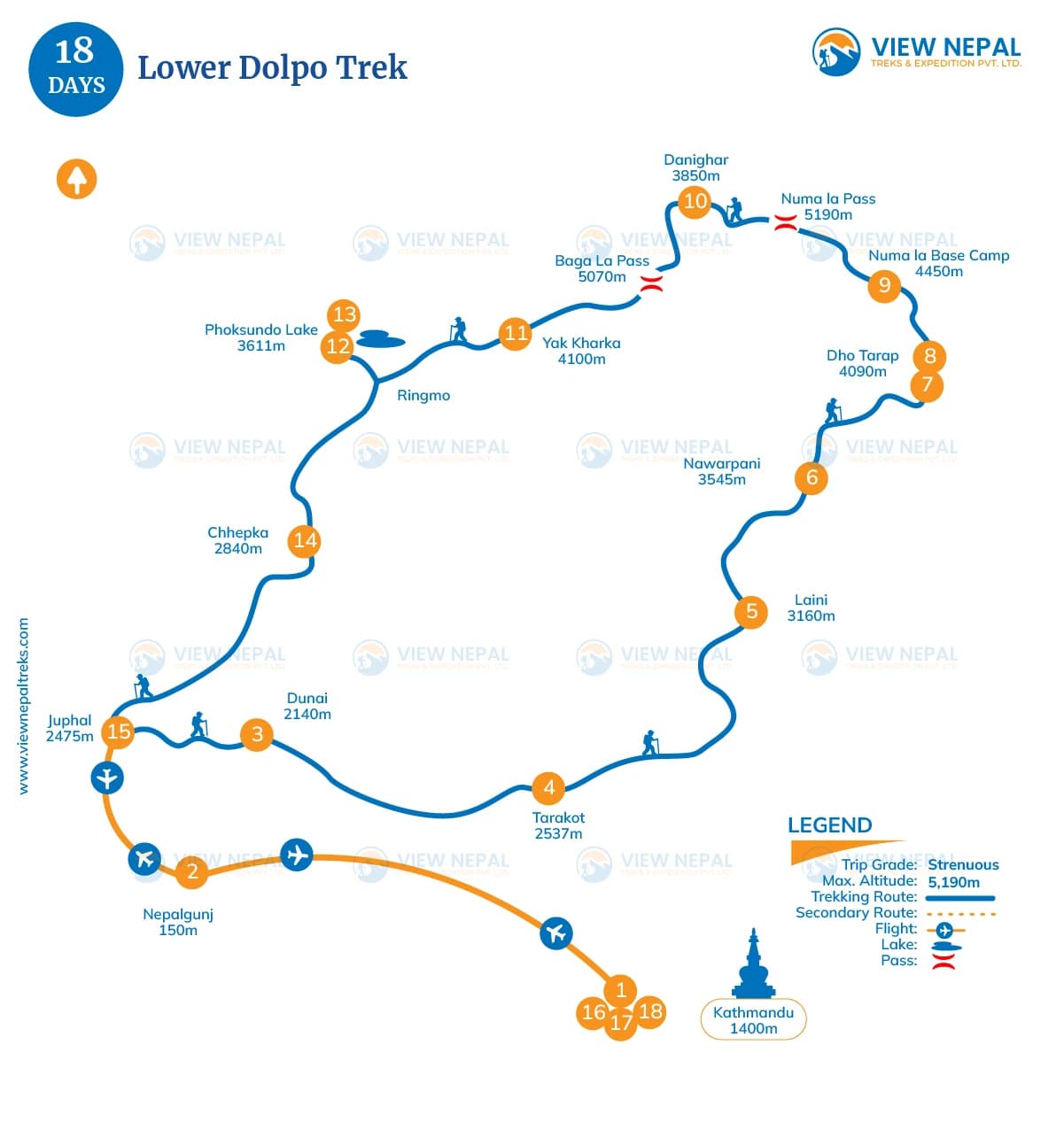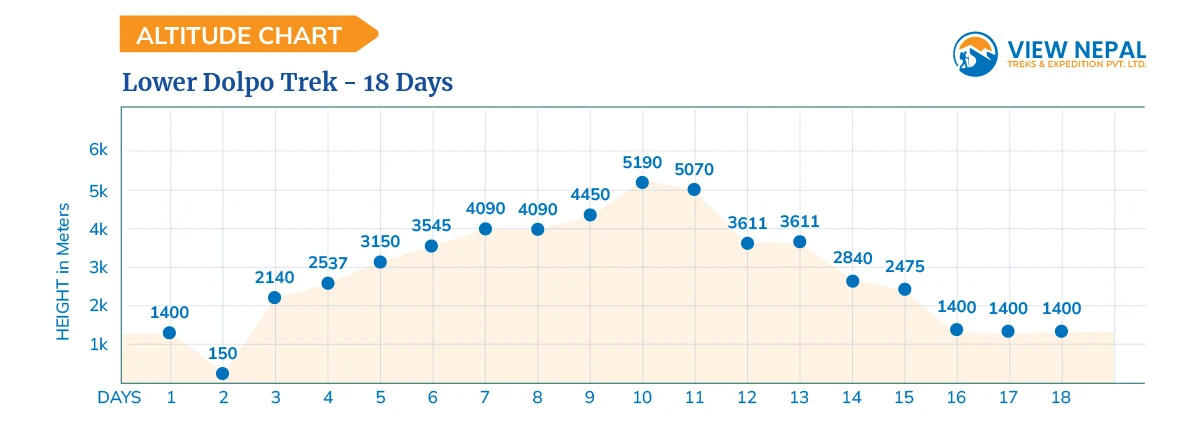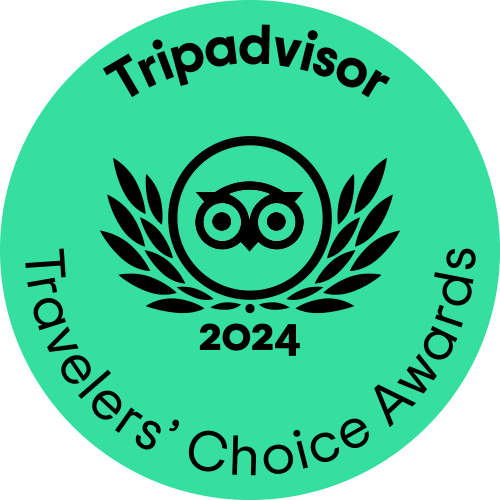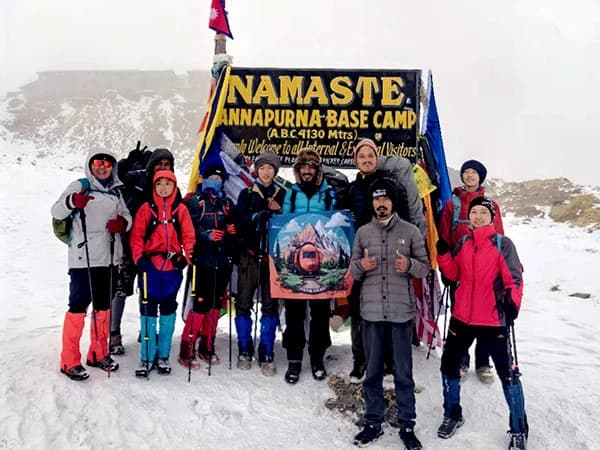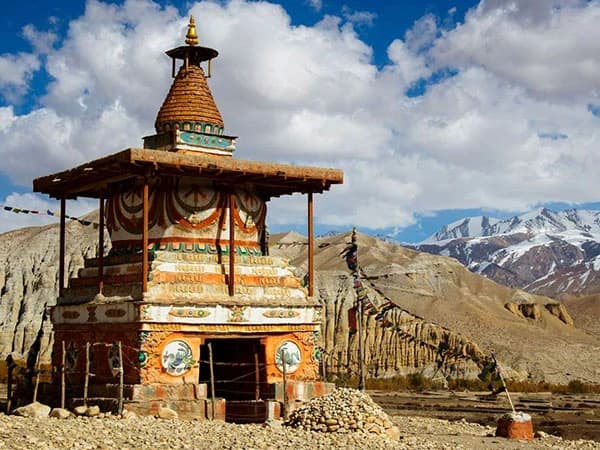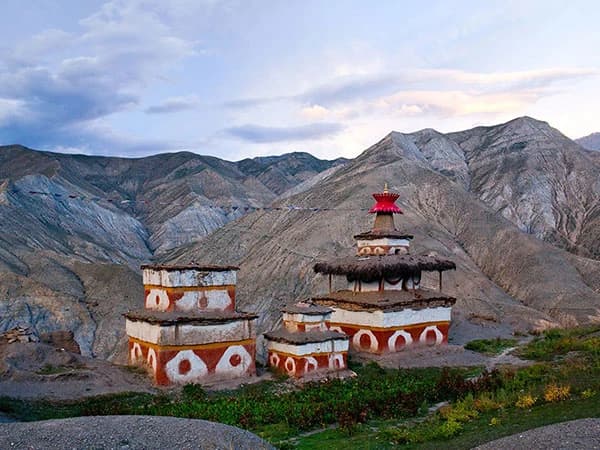Trek Overview
The Lower Dolpo Trek is a fascinating journey through one of Nepal's most remote and culturally rich regions. The trek offers a unique cultural experience, with an opportunity to explore the Tibetan-influenced culture of the Dolpo people. You'll visit ancient monasteries, including Shey Gompa, and witness traditional Tibetan Buddhist practices.
The trek traverses through stunning landscapes, including deep valleys, high passes, arid plateaus, and pristine lakes like Phoksundo Lake, the deepest in Nepal. The trek passes through the Shey Phoksundo National Park, home to endangered species like the snow leopard, blue sheep, and various birds. Lower Dolpo is less frequented by trekkers, offering a sense of solitude and untouched natural beauty.
Rest and prepare for the trek. Obtain permits and check gear. A short flight to Nepalgunj, a town near the Indian border.A scenic flight followed by a short trek to Dunai, the administrative center of the Dolpo region. Follow the Bheri River, passing through villages and terraced fields. The trail becomes more rugged as you ascend along the river gorge. Continue along the river, with steep climbs and descents.
Enter the Tarap Valley, passing through small settlements and Tibetan monasteries. Rest and explore the valley, visit local monasteries, and interact with the Dolpo people. A gradual climb through the valley, preparing for the high pass. A challenging day crossing the Numa La Pass, offering stunning views of the Dhaulagiri range. Another high pass with spectacular views, followed by a descent to Yak Kharka.
A scenic trek to the beautiful Phoksundo Lake, with its turquoise waters. Explore around the lake, visit Ringmo village, and enjoy the serene environment. Descend through forests and gorges, passing through small villages. A relatively easy trek back to Juphal.Retrace your journey back to Kathmandu. Explore the city, shop for souvenirs, and relax. Transfer to the airport for your flight home.
The trek involves long days of walking at high altitudes, so good physical fitness is essential. Proper acclimatization is crucial to prevent altitude sickness. While there are some basic lodges, camping gear is necessary for more remote sections of the trek. Hiring local guides and porters is recommended for navigation, cultural insights, and carrying heavy loads.
The Lower Dolpo Trek offers an unparalleled adventure through one of Nepal's most remote and culturally rich regions. It combines stunning natural beauty, unique cultural experiences, and the challenge of trekking through high mountain passes, making it a truly unforgettable journey.
Highlights
- Shey Phoksundo Lake is set amidst rugged cliffs and pine forests, considered one of Nepal's most beautiful lakes.
- Traditional Bon religion, especially in villages like Ringmo, offers a rare cultural insight unique to Dolpa.
- Diverse wildlife, including snow leopards, blue sheep, and Himalayan black bears, and
- Breathtaking landscapes from dense forests to alpine meadows.
- Few trekkers venture to Dolpa, so the trails are quieter and less commercialized, offering a true wilderness experience.
- Cross-high passes such as Kagmara La, offer sweeping views of the rugged Dolpa region and beyond.
- Ideal for adventurous trekkers looking for solitude, natural beauty, and cultural immersion in a less-traveled part of Nepal.
What can you Expect From the Lower Dolpa trek?
The Lower Dolpa Trek offers an adventurous, off-the-beaten-path experience through one of Nepal’s most remote and culturally intriguing regions. Expect to see the breathtaking turquoise waters of Shey Phoksundo Lake, encounter traditional Bon and Tibetan Buddhist culture in isolated villages, and traverse the rugged, scenic landscapes of Phoksundo National Park. This trek is ideal for those seeking solitude, diverse wildlife, and unique cultural experiences, all within a dramatic, untouched Himalayan setting. With fewer crowds and challenging high passes, it’s a rewarding journey for trekkers looking to explore Nepal’s wild side.

